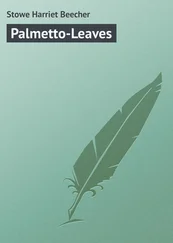Against my better judgment, or on behalf of it, I don’t know which, I got in the front seat. “We can each pay for our own ticket, okay?” she said. “That make you less nervous?”
“Fine.”
We both bought popcorn and settled into seats in the middle section, about a fourth of the way down the aisle. The Majestic was a magnificent World War Two — era movie house with a cathedral ceiling, plush carpeting, and employees dressed like bellhops; it was all going to seed but was still the best theater in town. The air conditioning felt good. This showing was sparsely attended: the closest person was at least four rows away.
After the coming attractions, the movie got under way. When Anthony Quinn started to demonstrate his famous finger-snapping, drunken, all-joyful-abandon Zorba dance, Paris, staring at the screen, unbuckled my belt. She lowered the zipper of my blue jeans, reached in, and started to slowly (and allow me to say expertly, though I’d had nothing to compare it to) stroke me. This went on well past Zorba’s dance. At one point, she leaned close and said, “It’s okay, darling. It’s okay, I’m in no hurry. The movie’s hardly halfway through I bet.” She had on some subtle, breathtaking perfume, and I think it was that, mixed with the tangy fragrance of her sweat, dried in the coolness of the theater, as much as the ministrations of her fingers which drove me to distraction. When I pulsed hard and exploded, thickly, into her hand, she whispered, lipsticked lips touching my ear, “That feels nice,” speaking for both of us, I hoped. Then she got me all tucked back in and zipped up, and even buckled my belt. Whispering again, she said, “A nice girl would go to the ladies’ room now, but I don’t want to miss any of the movie. It’s making me want to go to a Greek island.”
We didn’t speak about this in the car. In fact, we never spoke about it ever. About a week later, I received the first of many telephone calls like this one: “Hello, Howard? This is Jacob Garnes, Mandez’s father.”
There in my kitchen, between pounding heartbeats and hard-to-catch breaths, I immediately understood that Paris had mailed my letters. It had to have been Paris. No one else knew where the letters were hidden.
As for the conversation with my father that entered my diary: When I got back home from WGRD with my check for $666, I sat at the kitchen table looking at it. I may have had a second bowl of cereal. No more than half an hour later, Mr. Dykstra’s Studebaker appeared in the driveway. I stood at the window and watched my father crouch out from the driver’s seat. I couldn’t imagine how he persuaded Mr. Dykstra to loan him the Studebaker — the thought occurred to me that he’d stolen it. Either way, there it was, right in the driveway.
My father hadn’t noticed me yet. He was dressed in light brown slacks, brown loafers, a white short-sleeved shirt. I could see his sports coat slung over the front passenger seat. Really, he was as handsome as a movie star. He glanced briefly at the house, walked to the back of the Studebaker, popped open the trunk, took out a hammer, slammed shut the trunk, laid his left hand flat on the trunk lid, and brought the hammer straight down on his thumb. He winced and slumped in pain, then closed his eyes and leaned against the trunk for a moment, as if he were about to faint. He tossed the hammer in the back seat and walked into the house.
He hadn’t been in the house for well over a year. What I theorized right away was that he’d battered his thumb in order to deflect my mother’s anger and suspicion away from him. Desperate and inane — he was a coward that way. My theory wasn’t far-fetched at all: I’d seen him invent such distractions three or four times before. This time the bizarre plan didn’t have its intended effect because my mother wasn’t home. To this day, I’m amazed that he didn’t even know her work schedule.
I was alone in the house, sitting at the kitchen table, the check next to my cereal bowl. My father stood in the doorway, appraising me. “You’ve gotten too skinny,” he said. “You’re a skinny goat, son.”
“Since I’m your son, does that make you a goat, too?”
“That’s witty. That’s thinking on your feet.”
“What happened to your thumb, there, Dad?”
He held out his hand and studied it, as if beholding an object separate from himself. “Oh, that,” he said. “I accidentally slammed it in the car door. Get me some ice cubes and a towel, will you?”
I stayed at the table, trying to stare him down. It must’ve looked stupid. I was dressed in a black T-shirt and blue jeans and black high-tops, no socks. I had let my hair grow. I was the only one among my friends and acquaintances who had a ponytail.
“What’s that on the back of your head?” my father asked. He was nothing if not well groomed. He always kept his hair in what he called a “businessman’s cut.” When I didn’t answer, he said, “Cat got your tongue?”
He walked to the refrigerator, opened the door, took an ice cube tray from the freezer, set the tray on the kitchen table, and pried out some cubes with his ever-handy jackknife. The jackknife was on a key chain. He wrapped the ice cubes in a dishtowel and sat down across from me at the table. He swathed his thumb in the towel.
“Slammed the door on it, huh?” I said.
“You aren’t hard of hearing. That’s good. That’s a good thing.”
“It must hurt.”
“What’s that on the back of your head?”
“Where’s the hammer? Still in the back seat?”
“What hammer, exactly, are you referring to?”
We stared at each other for a long, silent moment. I could hear the refrigerator humming.
“I guess it’s a badge of individuality, that goddamn ponytail. It’s a short ponytail. But still noticeable. Is there something you want to tell me?”
“Like what?”
“Like you might not be the type of young man interested in girls.”
“I don’t get what you mean.”
“Never mind.”
“I see you’ve got Mr. Dykstra’s Studebaker out there.”
This stymied my father — how would I know whose car it was? How had I come by such knowledge?
“It’s a borrowed car, true enough.”
“Borrowed from whom I already said I know.”
“I’m very impressed by your diction. It’s like Shakespeare.”
“Too bad it doesn’t have California plates. I’ve never seen California plates.”
“The car I keep in California has California plates, naturally.”
“Naturally.”
“Maybe — and I just thought of this — maybe you’ve been low on cash and couldn’t afford a decent haircut. Maybe that hairdo’s the result of financial constrictions around this house in my absence. I send your mother money, you know. She’s got money I send her for house expenses. Come to think of it, I could give you a haircut right now, in the kitchen here. Just with a scissors.”
“No thanks.”
“I’ve had the same haircut since I was in the air force, flying over Europe. The Italian campaign. When a haircut suits you, it suits you no matter how the world changes.”
The ice cubes were melting out of the towel.
“Speaking of license plates,” he said. He adjusted the towel and his face cringed.
“What about them?”
“Let’s reverse the situation here, shall we?”
“What do you mean?”
“Let’s reverse the situation. Say you dropped by my place of residence and said you were temporarily not flush. Do you think for one minute I’d hesitate to reach directly into my pocket, snap out my wallet, and hand you a roll of five-dollar bills, or tens, or twenties, you being my son in need? Peel off a few fifties for you? Right on the spot to help out my son?”
Читать дальше












